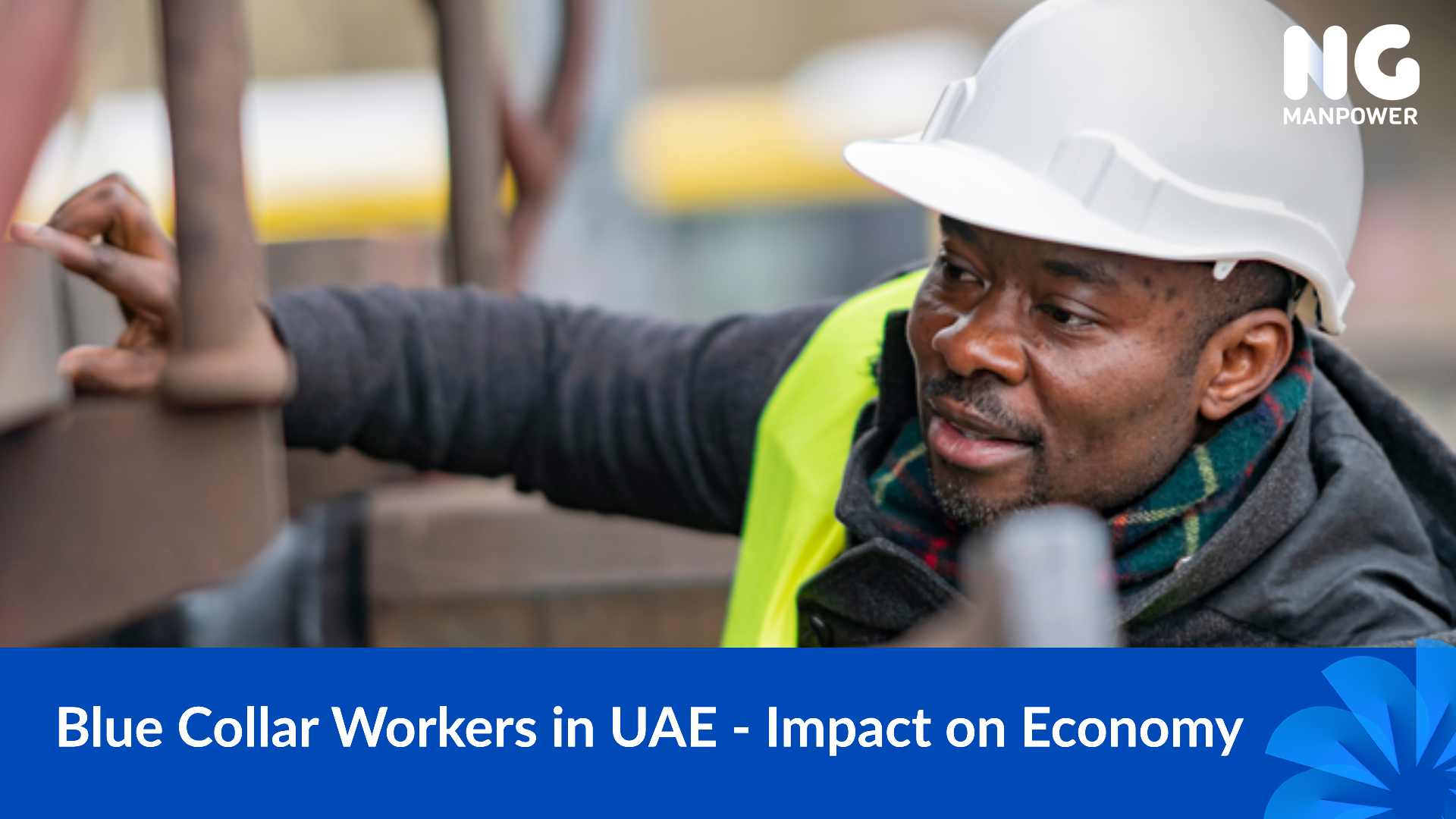In the vast fabric of the modern workforce, blue collar workers in UAE often take a back seat to administrative professionals in the spotlight. But the importance of workers should not be taken lightly. These hardworking people are the backbone of the industries that grow our economy. Maintain our infrastructure and keep society running smoothly.
In this article we will discuss the differences that blue collar manpower in Dubai receive and the rest of the UAE. We will explain in detail about the minimum wage differences and the fundamental roles within it. The working conditions in which blue collar workers UAE work and their legal rights.
Wage Disparities Among Blue Collar Workers
Blue collar workers in UAE are the backbone of our society, yet they are often ignored and undervalue. These hardworking people keep our cities functioning and our infrastructure and economy thriving. The resilience and strength of the working class, despite many hardships and often harsh working conditions, is truly remarkable.
Despite the rising cost of living, wages in many jobs have stagnated or grown more slowly than in other industries. This wage stagnation makes it difficult for workers to meet their basic needs and support their families.
Role of Industry and Sector in Wage Differences
One of the biggest problem for blue collar workers in UAE is the loss of jobs. As automation and technological advances increase, many traditional manual tasks have been replaced or simplified. Employment in industries such as manufacturing and mining has dropped significantly and many workers are having difficulty finding stable jobs.
Below are some relevant considerations:
- Industry and Type of Work: The industry in which a blue collar workers in UAE. Is employee can significantly affect his or her wage. Some industries, such as construction, manufacturing, or hospitality. May offer different wages due to the demand for specific skills. Job availability, and working conditions. For example, construction workers may receive different wages depending on the type of project. They is involve in (e.g., infrastructure projects, commercial or residential buildings).
- Skill Level and Experience: Wage differences also depend on the skill level and experience of blue collar workers in UAE. Those with specialized skills or a long work history may receive higher wages. Employee salary certifications or specific training may have an advantage in terms of wages.
- Collective Bargaining and Unions: The presence of unions and the ability to bargain collectively can influence wage conditions. Unions can advocate for better wages and working conditions for blue collar workers in UAE.
- Gender and Nationality: In some cases, wage differentials may also be related to gender and nationality. Women and foreign workers may face wage inequalities compared to men and local citizens.
- Government Policies and Labor Regulations: Government policies and labor regulations in the UAE also play an important role. These can establish minimum wages, working conditions and labor rights for blue collar workers in UAE.
Gender Wage Gap Among Blue Collar Workers
Globally, the gender wage gap persists in many countries and sectors. Women often earn less than men for the same or similar work. The International Labor Organization (ILO) and other organizations have been advocating for equal pay and the elimination of gender discrimination in the workplace.
Factors Contributing to the Wage Gap:
- Discrimination: Gender discrimination can affect wages. Women often face barriers to certain jobs or promotions.
- Education and Training: Differences in education and training can also influence wages.
- Traditional Gender Roles: Cultural expectations about gender roles can affect career choices and therefore wages.
- Maternity: Career interruptions due to childbearing can affect women’s earnings.
Policies and Regulations:
- Governments and companies can implement policies to address the wage gap. This can include equal opportunity, pay transparency and pay parental leave.
- In some countries, labor laws have put in place to ensure equal pay.
Work Conditions for Blue Collar Workers in the UAE
In the United Arab Emirates (UAE), working conditions for blue collar workers in UAE are regulated by Federal Law No. 8 of 1980, which has been amended several times by subsequent federal laws. Below are some key aspects related to the working conditions of blue-collar workers in UAE in the UAE:
- Scope of Application: The labor law applies to all UAE employees, whether nationals or expatriates, with some exceptions. Public sector workers, members of the police force and armed forces, domestic staff, farmers and herders are not covered by this law.
- Employment Contracts: Employers must present the worker with an offer letter approved by the Ministry of Human Resources and Emiratization before signing the contract. The conditions in both documents must be the same, unless the changes benefit the worker. A notice period is established for the termination of a contract, which varies from 1 to 3 months.
- Sponsorship and Visas: Companies established in the UAE must sponsor their foreign workers. This implies being responsible for work and residence visa procedures. The relationship between employer and employee goes beyond labor obligations and has legal implications, such as the employer’s liability in case of legal problems of the employee.
Health Concerns
Manual labor often involves physically demanding tasks and exposes workers to occupational hazards. From heavy lifting to exposure to harmful chemicals, manual laborers face an increased risk of work-related injuries and health problems.
Also, blue collar workers in UAE often have limited access to benefits such as health care, retirement plans and paid leave. Many manual jobs are part-time or contract, which means workers may not be entitled to the same benefits as their counterparts in administrative professions.
For example, a janitor working for a janitorial company may not have access to health care benefits, leaving him or her vulnerable to health problems without adequate coverage.
Working Hours and Overtime Policies
Employees are entitled to one and a half days off per week, which may be accumulated in a period of 14 days. This means that, during two consecutive workweeks, employees are entitled to enjoy a full day off and an additional working hour day.
In addition, there are 14 working holidays throughout the year. These holidays are paid, which means that employees receive their normal salary even during these days off. It is important to note that these holidays are not recoverable, which means that they cannot be exchanged for other days off or accumulated for later use.
Legal Rights and Protections for Blue Collar Workers in the UAE
In the United Arab Emirates (UAE), legal rights and protections for blue collar workers in UAE are essential to ensure a fair and safe working environment. Some of the most important rights and protections are listed below:
- Payment of wages: Manual laborers are entitled to receive fair and timely wages for their work.
- Paid breaks: Employees must enjoy paid breaks during their workday, according to labor regulations.
- Overtime: If a blue-collar worker in UAE works overtime or at night, he/she should receive additional compensation for this.
- Social benefits: Workers are entitled to social benefits, such as health insurance, pensions, and other employer-provided benefits.
- Social security affiliation: Employers must ensure that workers are affiliated with the social security system, which includes medical care, pensions and protection against occupational hazards.
- Protection against discrimination: Blue collar workers in UAE are protected against discrimination in the workplace because of their race, religion, gender or nationality.
- Right to file claims: If a worker believes that his or her rights have been violated, he or she has the right to file a claim with the labor authorities.
- Family and Medical Leave: Workers may be entitled to take up to 12 weeks of unpaid leave for family or medical circumstances under the Family and Medical Leave Act (FMLA).
- Basic Rights: In addition to these specific rights, all workers, regardless of their occupation, have basic rights. Such as a safe working environment and fair conditions.
if you want to know more information about blue collar workers Dubai and other articles of your interest, we invite you to visit our blog and if you wish to consult our services, you can contact us now.






